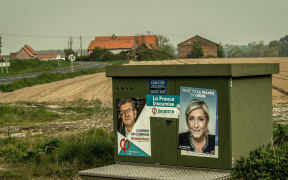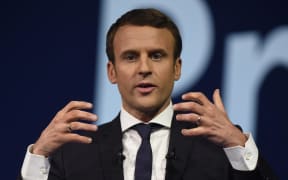Far-right leader Marine Le Pen and centrist Emmanuel Macron are leading in the partial vote count in France's presidential election.
If the results are confirmed, once all votes are counted, the candidates will face each other in the decisive 7 May runoff.
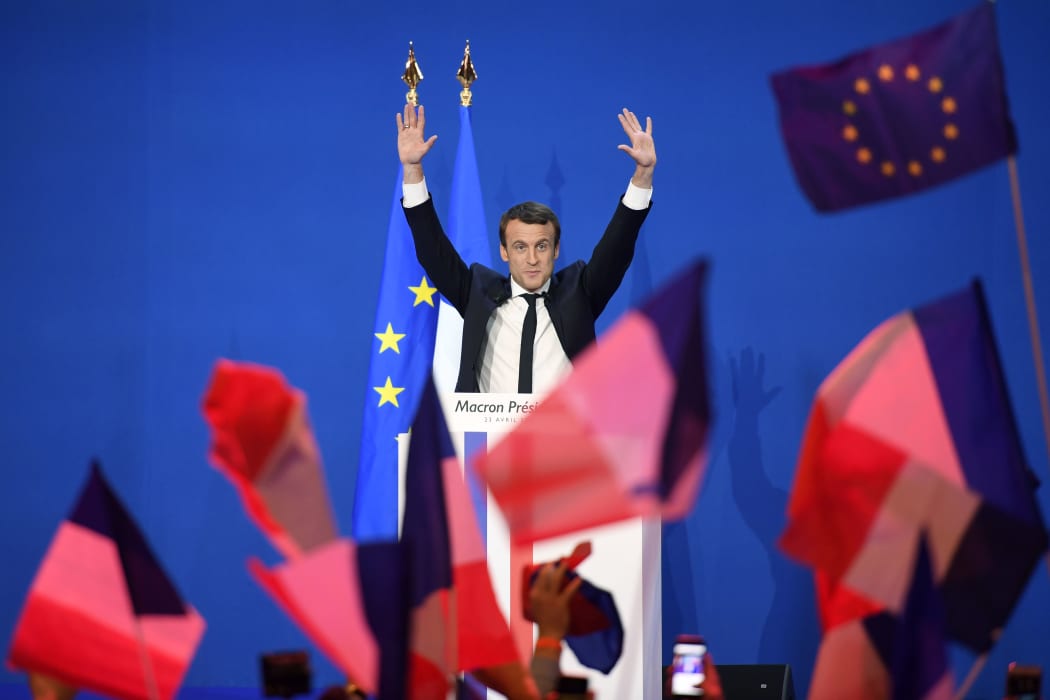
Emmanuel Macron speaking to supporters after the first round of voting in the French presidential election. Photo: AFP
With nearly all votes counted, figures from the Interior Ministry put Mr Macron on 23.82 percent and Ms Le Pen on 21.58 percent.
Conservative Francois Fillon, on 19.96 percent, conceded defeat and urged his supporters to back Mr Macron. Far left candidate Jean-Luc Melenchon, who had advanced at the expense of Socialist Party candidate Benoit Hamon, had 19.49 percent.
According to new opinion polls, the result is a big step towards the French presidency for Mr Macron who would easily win the final clash against Ms Le Pen.
The outcome is a huge defeat for the two centre-right and centre-left groupings that have dominated French politics for 60 years, and also reduces the prospect of an anti-establishment shock on the scale of Britain's vote last June to quit the European Union and the election of Donald Trump as US president.
In a victory speech, he told supporters of his fledgling En Marche! (Onwards!) movement: "In one year, we have changed the face of French politics."
With an eye to MS Le Pen's avowedly France-first policies, HE told the crowd: "I want to be the president of patriots in the face of a threat from nationalists."
The election also provides a choice between radically different recipes for reviving an economy that lags its neighbours, and where almost a quarter of under-25s have no job.
Mr Macron, 39, a centrist ex-banker who set up his En Marche! (On the move) party just a year ago, was economy minister under President Hollande but resigned in 2016 to fight for the presidency. He offers a vision of gradual economic deregulation that would cause few ripples on global financial markets.
Marine Le Pen, 48, leader of the Front National, proposes a more disruptive programme of higher social spending, financed by money-printing, coupled with a withdrawal from the euro and possibly the EU.
In a speech to suporters she vowed to defend France against "rampant globalisation" and urged voters to shake off the shackles of an "arrogant elite".
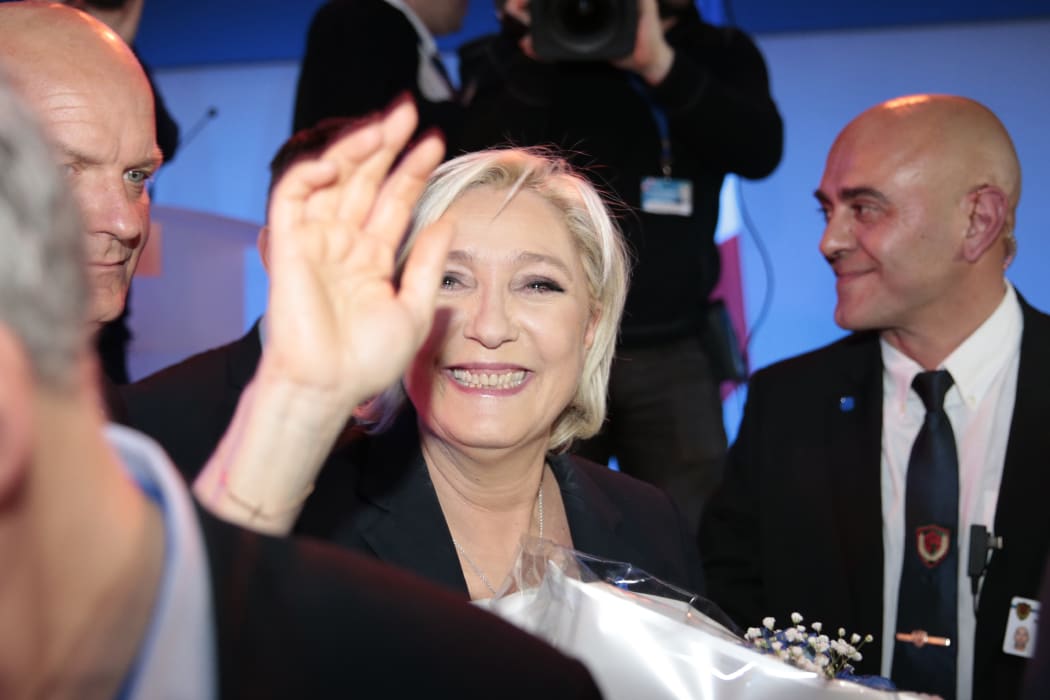
Marine Le Pen said the result was "historic". Photo: AFP
In a polling station in Lyon, long-time left-wing voter Julien Rossi, 42, said he had been won over by Mr Macron. "We're from the same generation. He goes down well abroad. He's the most open of the candidates."
Pollsters say jobs, the economy and and the general trustworthiness of politicians are voters' main concerns.
But security has re-entered the debate since Thursday's killing of a policeman on the Avenue des Champs-Elysees, and the arrest in Marseille on Tuesday of two men suspected of planning an imminent Islamist attack.
Ms Le Pen has emphasised the Islamist threat and promised tougher border controls, and some argue that the incident increases her chances. But previous attacks, such as the killing of 130 people in Paris by Islamist gunmen in November 2015 ahead of regional polls, have not appeared to affect voting.
More than 50,000 police and 7,000 soldiers backed by rapid response units were patrolling as people cast their votes on Sunday. One polling station in Besancon, in eastern France, was evacuated after a stolen vehicle was abandoned nearby with the engine running.
- Reuters
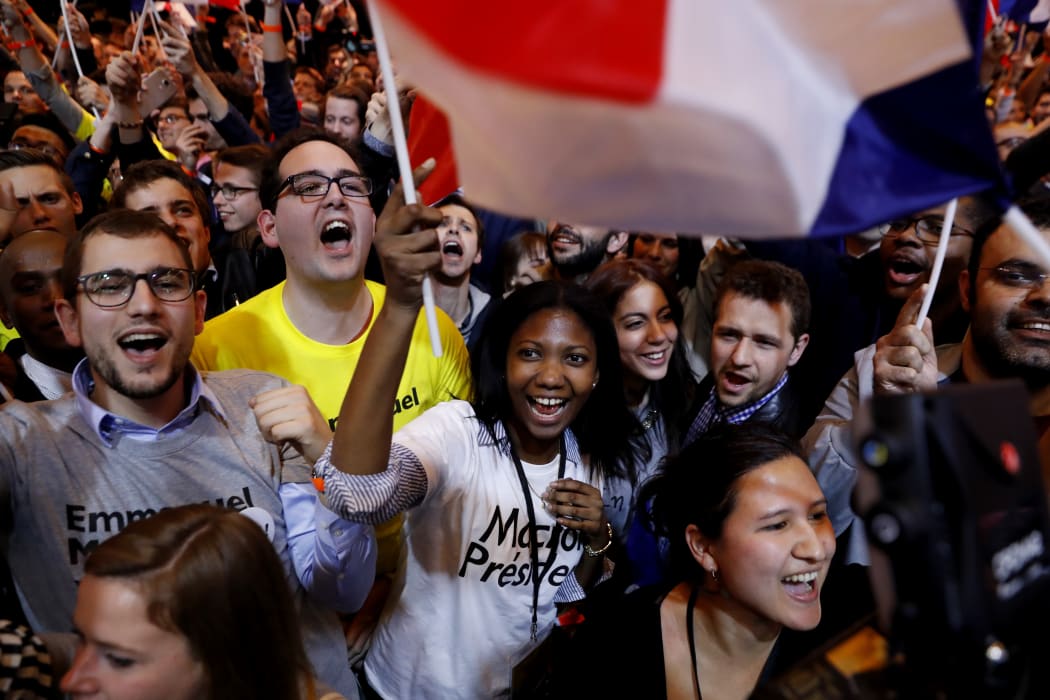
Supporters of Emmanuel Macron celebrate projections their candidate will qualify for the second round. Photo: AFP
